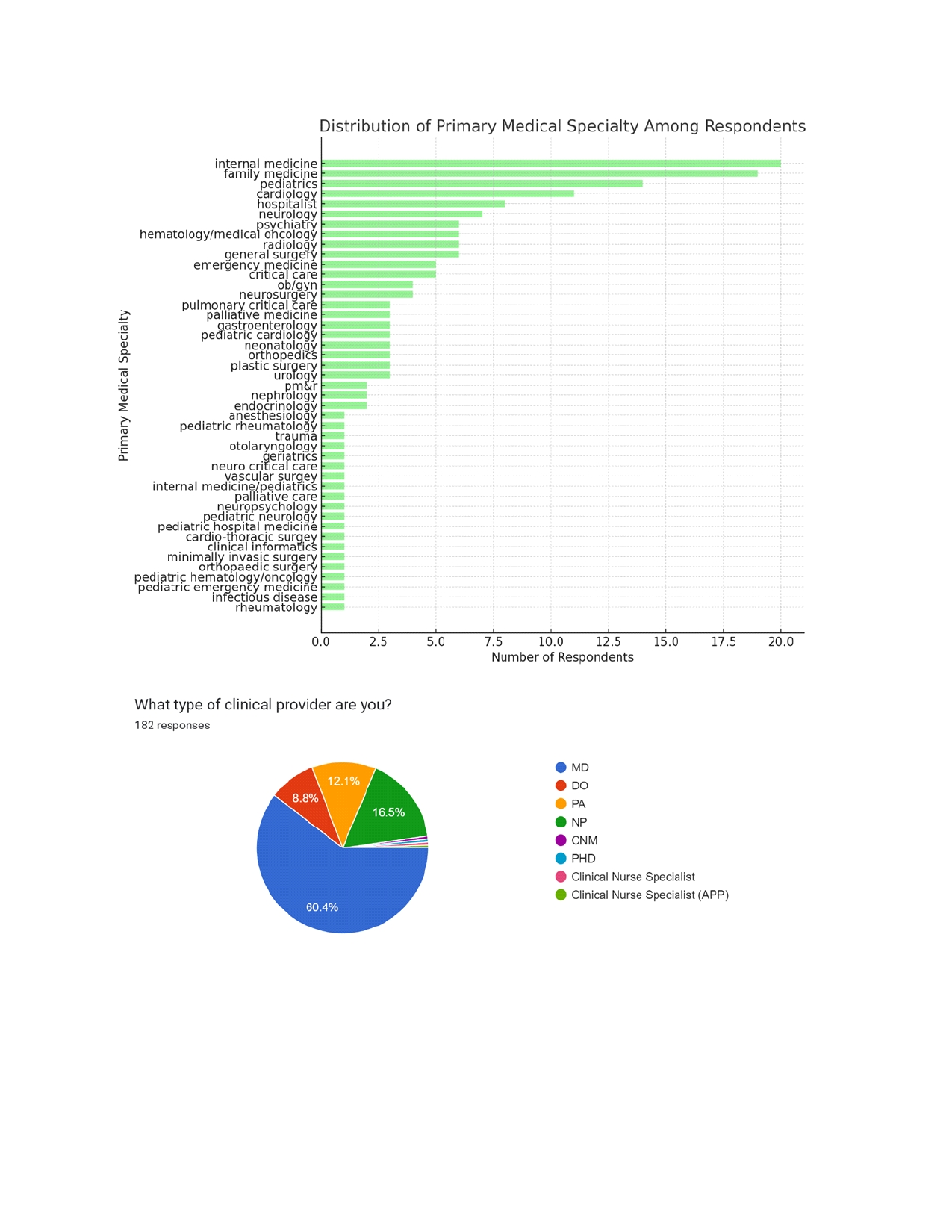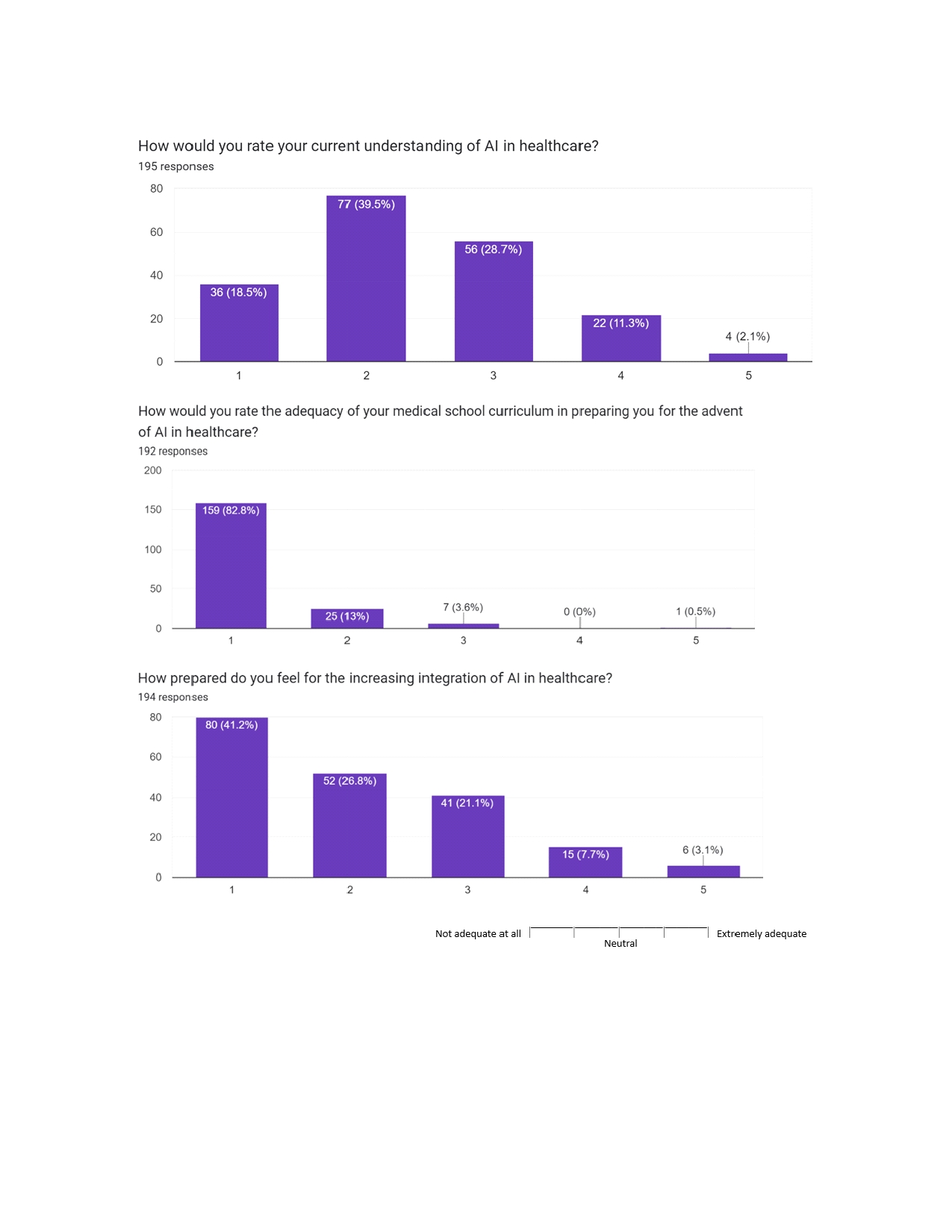Background: Artificial intelligence (AI) is increasingly being integrated into healthcare, but there is limited data on clinicians’ perceptions and preparedness regarding AI in medical practice. This survey aimed to understand clinicians’ knowledge, attitudes, and experiences of healthcare providers with AI tools in healthcare. This is crucial as the adoption of AI in healthcare can enhance patient care, reduce cost and improve efficiency.
Methods: The data was collected through a survey distributed to healthcare providers via an internal email list. The survey comprised of multiple-choice questions, like rt scale questions, and open-ended questions. This mix of question types helps to gather both quantitative and qualitative data on the respondents’ opinions and experiences with AI in healthcare.
Results: 195 responses were received over a 2-month period in 2022-2023. Respondents represented a range of specialties, experience levels, and practice settings. Most had little formal training in AI as part of medical education. Self-reported understanding of AI was low overall. ChatGPT was the most used tool out of work, with very limited clinical use of other AI systems reported. Respondents recognized the potential of AI to improve efficiency and outcomes, but had concerns about ethical implications, job security, and the future patient-physician relationship. Preparedness for increasing AI integration rated low. Most respondents expressed optimism about the future role of AI in healthcare, despite varying levels of comfort and confidence in discussing and differentiating AI technologies.
Conclusions: This survey identified knowledge gaps and lack of readiness among clinicians regarding integration of AI into healthcare. The results highlight the need for more AI education and training tailored to clinicians, along with greater involvement of clinicians in development and evaluation of AI systems for medical practice. More work is needed to build clinician competency in AI and ensure ethical, effective adoption of AI tools to augment human expertise.The findings underscore the importance of targeted educational programs, clear policies, and ethical guidelines to facilitate the integration of AI in healthcare, ensuring providers are confident, informed, and prepared for the changes AI is set to bring to the healthcare landscape.


